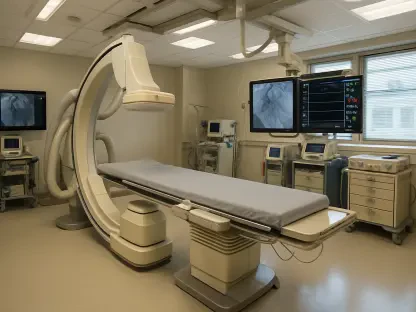A recent survey reveals that nearly 30% of Australians have struggled to find a GP willing to bulk bill their appointments in the past year. This statistic shines a light on the ongoing difficulties faced by patients seeking affordable healthcare—a challenge the Federal Government aims to address with a bold new bulk billing incentive program for general practitioners (GPs).
In an unprecedented move, the government is investing $7.9 billion to expand the triple bulk billing incentive for Medicare-eligible individuals. This initiative, introduced in the 2025-26 Federal Budget, targets practices that commit to bulk billing 100% of their patients by adding a 12.5% loading payment on Medicare rebates. The goal is to enhance the prevalence of bulk billing services, making healthcare more accessible for Australians across the board.
A New Era for General Practitioners: What Does It Mean?
With GPs often struggling financially, especially in underserved communities, this new program could be a game-changer. The loading payment aims to support clinics that have traditionally found it challenging to offer bulk billing, thereby reducing the financial barriers for patients who need access to healthcare the most.
The Importance of Accessible Healthcare
Currently, not all Australians have equal access to bulk billed services, creating a significant gap in healthcare accessibility. In particular, patients in rural and remote areas, as well as the elderly and those with chronic conditions, have faced difficulties in finding practitioners willing to provide bulk billing services. This discrepancy highlights broader healthcare issues and the necessity of a more inclusive billing system.
Structuring the Bulk Billing Incentive Program
The structure of this new incentive is notable for its comprehensive approach. Practices interested in participating must register through MyMedicare and ensure that every GP within the practice commits to bulk billing all patients for eligible services. Additionally, these practices will advertise their involvement in the program on Healthdirect’s National Health Services Directory. Unaccredited practices and sole providers have been exempted from this requirement until December 31, 2026, ensuring no practice is unfairly disadvantaged by the accreditation process during the transition.
Reactions from the Healthcare Sector
The healthcare community has shown a mix of optimism and caution regarding the new program. Dr. Michael Wright of the Royal Australian College of General Practitioners (RACGP) acknowledged the additional funding’s potential benefits but voiced concerns about focusing on bulk billing incentives over direct Medicare rebate increases. Discussions within the sector reflect these mixed sentiments, balancing the promise of more accessible healthcare against the practicalities of implementation.
Financial Implications for GPs
For GPs, the financial impact of this program is substantial. Current estimates using the GP Earnings Calculator suggest significant earnings increases for those who adopt full bulk billing practices. In metropolitan areas (MM1), GPs could see their annual earnings rise to $403,805, as opposed to $398,448 under existing practices. Rural areas stand to benefit even more, with earnings for full bulk billing GPs potentially increasing to $457,816 annually, demonstrating the initiative’s potential to bridge income gaps between different billing models.
Practical Steps for Practices
Practices considering the new program must follow several actionable steps, starting with registering with MyMedicare and meeting the program’s criteria. Transitioning from mixed billing to full bulk billing will be crucial, requiring strategic planning and potentially restructuring consultation and billing processes. Effective marketing of their involvement in the incentive program via Healthdirect’s directory will also be important to attract new patients and make the shift to full bulk billing successful.
In summary, the new Bulk Billing Practice Incentive Program demonstrates the government’s commitment to promoting more equitable healthcare across Australia. While the program’s financial benefits are evident, particularly for practices willing to adopt full bulk billing, the success of this initiative depends on effective implementation and support within the healthcare community. The exemption for accreditation requirements until 2026 allows a wider range of practices to participate, recognizing the diverse challenges faced by providers. The potential financial uplift for GPs underscores the program’s role in enhancing the attractiveness of bulk billing, ultimately aiming to improve patient access and reduce healthcare disparities. Looking ahead, ongoing engagement and feedback from both providers and policymakers will be crucial in refining the program and ensuring its long-term impact on Australia’s healthcare landscape.









